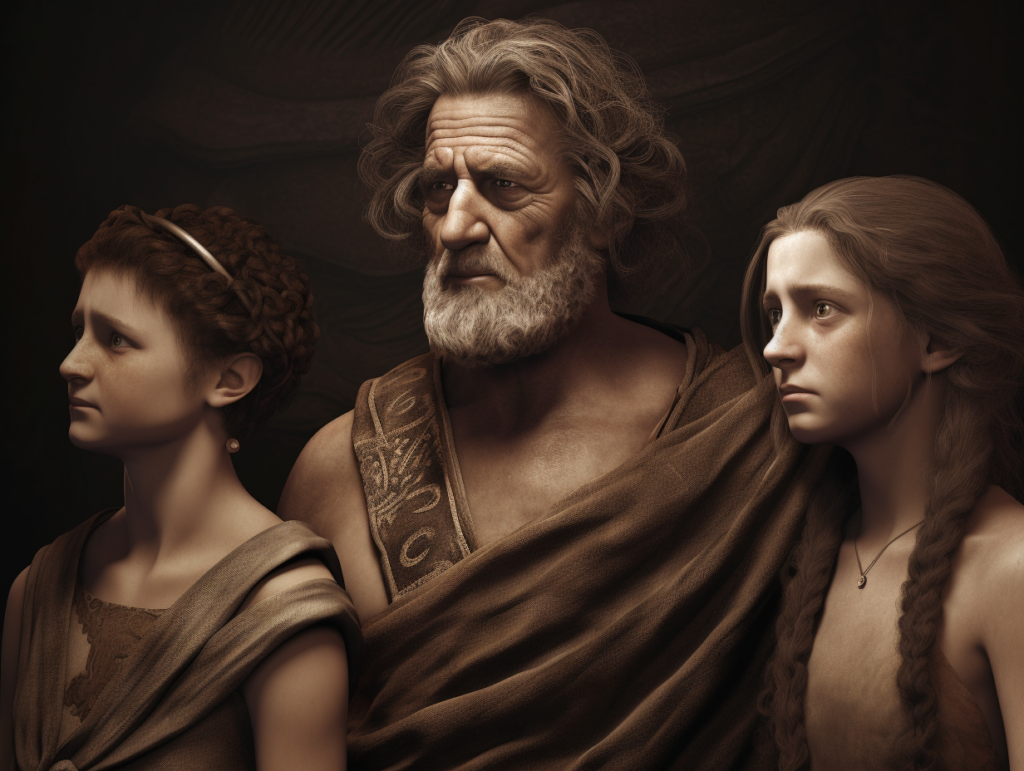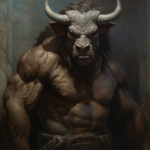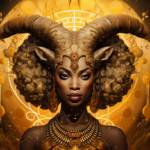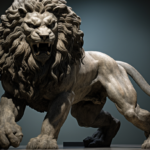Discover the powerful family ties of Hephaestus, the mighty smith of the gods.
As you delve into this article, you will uncover the divine lineage of this legendary figure.
From his parents Zeus and Hera, to his wife Aphrodite, and his unique partnership with Athena, each relationship holds its own significance.
Explore the role of Hephaestus as the blacksmith of the gods and witness the influence he has within the Olympian family.
Key Takeaways
- Hephaestus is the son of Zeus and Hera, which gives him a unique position within the Olympian family.
- Hephaestus has a rivalry with his brother Ares, constantly battling for superiority and dominance.
- Hephaestus has two divine offspring, Eucleia and Philophrosyne, and is married to Aphrodite, the goddess of love and beauty.
- Hephaestus forms a unique partnership with Athena, with their complementary skills and shared goals representing creativity and wisdom.
Hephaestus’s Parents: Zeus and Hera
You often wonder about Hephaestus’s parents, Zeus and Hera. As the god of power, you’re intrigued by the family ties of the mighty smith of the gods.
Zeus, the king of the gods, is the embodiment of strength and authority. His thunderous voice commands respect and his lightning bolts strike fear into the hearts of mortals.
Hera, the queen of the gods, is a formidable figure in her own right. She exudes power and grace, ruling over marriage and childbirth with an iron fist.
Together, Zeus and Hera form a power couple that reigns over Mount Olympus. Yet, their relationship isn’t without its flaws. Hera’s jealousy and Zeus’s infidelity often cause strife within their marriage.
Despite their differences, they share a deep love for their son Hephaestus. While their relationship may be tumultuous, there’s no denying the power and influence that Zeus and Hera hold as the parents of the renowned smith of the gods.
Sibling Rivalries: Hephaestus and Ares
Now let’s talk about the fierce sibling rivalry between Hephaestus and Ares.
Jealousy and resentment played a significant role in their relationship, as they battled for superiority within the divine family.
The dynamics between these two powerful gods provide a captivating glimpse into the complexities of sibling dynamics in Greek mythology.
Jealousy and Resentment
Ares’ jealousy towards Hephaestus fueled their intense rivalry and resentment towards each other. As the God of War, Ares desired power and dominance, and he saw Hephaestus as a threat to his position in the hierarchy of the gods.
Hephaestus, with his unmatched skills as a blacksmith and craftsman, had the ability to create weapons and armor that could rival Ares’ own. This made Ares feel inferior and envious of Hephaestus’ talents. The constant competition between them led to a deep-rooted animosity, as they constantly sought to outdo each other and prove their superiority.
Their clashes weren’t only physical but also psychological, as they tried to undermine each other at every opportunity. The jealousy and resentment between Hephaestus and Ares created an everlasting sibling rivalry that added fuel to the flames of their power-hungry desires.
Battle for Superiority
With their competitive nature and desire for superiority, Hephaestus and Ares constantly clashed in their battle for dominance. These two powerful gods engaged in a relentless struggle to prove their strength and establish themselves as the superior sibling. The battlefield became a stage for their never-ending feud, as they fought for recognition and control.
The battle for superiority between Hephaestus and Ares was fueled by their thirst for power, and their determination to outdo one another. Their rivalry was marked by displays of strength, skill, and cunning, as they sought to outshine each other at every turn. Each clash between them served as a reminder of their unyielding quest for dominance, creating a dynamic of intense competition and unrelenting ambition.
- Constant power struggles
- Demonstrations of strength and skill
- Fierce determination to outdo one another
- Unyielding quest for dominance
- Intense competition and unrelenting ambition
Divine Family Dynamics
You couldn’t help but be fascinated by the complex dynamics between Hephaestus and Ares, as their sibling rivalry was filled with tension and competition.
These two powerful gods, both sons of Zeus and Hera, constantly battled for superiority and dominance. Hephaestus, the skilled craftsman and blacksmith of the gods, possessed a unique talent that Ares, the god of war, envied. Hephaestus’s ability to create weapons and armor surpassed even Ares’s own prowess in battle.
This fueled Ares’s jealousy and drove him to challenge Hephaestus at every opportunity. Their rivalry was fierce, each vying to prove their superiority to the other. Ultimately, it was a clash between craftsmanship and brute strength, a battle that symbolized the eternal struggle for power and recognition amongst the gods.
Hephaestus’s Divine Offspring: Eucleia and Philophrosyne
Eucleia and Philophrosyne, the divine offspring of Hephaestus, were esteemed for their virtues and admirable qualities. These illustrious goddesses possessed the power to bestow great fortune upon those who sought their favor. As you delve into the depths of their divine lineage, you’ll discover the following attributes that make them truly exceptional:
- Eucleia, the goddess of good reputation, brings with her the power of influence. With her grace, you can command respect and admiration from all who cross your path.
- Philophrosyne, the goddess of welcome and kindness, possesses the ability to foster harmonious relationships. Through her guidance, you can cultivate alliances that will strengthen your position of power.
Together, Eucleia and Philophrosyne form an unstoppable force, capable of elevating your standing among the gods. In their presence, you’ll be imbued with the qualities necessary to navigate the treacherous waters of ambition and emerge victorious.
Embrace their divine lineage, and witness as your power and influence soar to unparalleled heights. The path to greatness lies before you, waiting to be claimed.
The Goddess of Love and Beauty: Aphrodite, Hephaestus’s Wife
Embrace the enchanting tale of Hephaestus’s wife, Aphrodite, as she captivates the hearts of gods and mortals alike with her irresistible love and beauty. Aphrodite is not only the goddess of love and beauty but also the epitome of power and desire. She is the embodiment of feminine allure, her radiant presence commanding attention wherever she goes. As the wife of Hephaestus, the god of craftsmanship, their union is a fascinating juxtaposition of beauty and skill.
| Domain | Power | Influence |
|---|---|---|
| Love | Aphrodite possesses the power to inspire love and desire in gods and mortals alike. Her enchanting aura and irresistible charm can make even the most stoic heart melt. | |
| Beauty | Aphrodite’s beauty is unparalleled, making her the epitome of physical perfection. Her radiant appearance has the power to captivate and entrance all who behold her. | |
| Seduction | Aphrodite’s seductive prowess is legendary. She has the ability to manipulate and entice others to fulfill her desires. Her seductive nature gives her immense power over gods and mortals. | |
| Influence | As the goddess of love and beauty, Aphrodite wields significant influence over relationships, emotions, and aesthetics. Her power extends to all aspects of love, desire, and attraction. |
Aphrodite’s marriage to Hephaestus may seem incongruous, but their union represents the union of beauty and craftsmanship, power and skill. Together, they embody the essence of creation and desire, a force that moves the heavens and the earth. Aphrodite’s captivating presence and alluring charm make her a figure of immense power and desire, forever entwined with the legend of Hephaestus and the gods.
Hephaestus and Athena: A Unique Partnership
In your exploration of Hephaestus’s family ties, you’ll discover that his partnership with Athena is a truly unique and extraordinary collaboration. These two powerful gods come together to form an unstoppable team, combining their skills and expertise to achieve greatness.
Here are five reasons why their partnership is so powerful:
- Complementary Skills: Hephaestus, the god of blacksmiths and craftsmanship, brings his unparalleled skill in creating weapons and armor. Athena, the goddess of wisdom and warfare, provides her strategic thinking and battle prowess. Together, they create the perfect balance of brains and brawn.
- Mutual Respect: Hephaestus and Athena hold each other in high regard, recognizing and appreciating each other’s talents. They understand the importance of working together and value each other’s contributions.
- Shared Goals: Both gods desire power and victory. They unite their forces to protect Mount Olympus and the gods from any threats, ensuring their dominance and authority in the divine realm.
- Unbreakable Bond: Hephaestus and Athena have a deep bond that goes beyond mere partnership. They trust and support each other, forming an unbreakable alliance that withstands the test of time.
- Symbolic Representation: Their partnership symbolizes the union of creativity and wisdom, emphasizing the importance of collaboration and cooperation in achieving success.
Together, Hephaestus and Athena embody the epitome of power, proving that when great minds and abilities come together, they become an unstoppable force in the realm of the gods.
Hephaestus’s Step-Mother: Metis and Her Role in His Life
As you delve into Hephaestus’s family history, you’ll uncover the significant role his step-mother, Metis, played in his life. Metis, the goddess of wisdom and cunning, wasn’t only the first wife of Zeus but also the mother of Athena, Hephaestus’s half-sister. Despite her status as a step-mother, Metis had a profound influence on Hephaestus’s development as a god of craftsmanship and creativity.
Metis possessed an unparalleled intellect, which she passed on to her daughter Athena. It was through Athena that Metis indirectly shaped Hephaestus’s destiny. Athena, the goddess of wisdom and strategic warfare, recognized Hephaestus’s inherent talent for forging and craftsmanship. She took him under her wing and mentored him, imparting her knowledge and skills.
Under Athena’s guidance, Hephaestus grew to become the master artisan of the gods, creating magnificent weapons, armor, and legendary artifacts. Metis’s influence on Hephaestus was indirect but undeniable. Through her daughter Athena, she instilled in Hephaestus the importance of precision, ingenuity, and artistry.
Metis’s role in Hephaestus’s life serves as a testament to the power of familial connections and the impact they can have on one’s journey towards greatness. Her wisdom and guidance, passed down through Athena, helped shape Hephaestus into the revered and celebrated god of fire and craftsmanship. It’s a reminder that even step-mothers can play a significant role in shaping one’s destiny, and their influence should never be underestimated.
Hephaestus’s Nephews and Nieces: Ares’ Children
Take a moment to explore the fascinating world of Hephaestus’s nephews and nieces, as they’re the children of Ares, the god of war. These powerful offspring inherit their father’s strength and aggression, making them formidable beings in their own right. Here are five of Ares’ children who are also related to Hephaestus:
- Deimos: Known as the personification of terror, Deimos strikes fear into the hearts of mortals and immortals alike. His presence on the battlefield is enough to instill panic and chaos.
- Phobos: The embodiment of fear, Phobos complements Deimos’ terror by paralyzing his enemies with intense dread. Together, they make a fearsome duo, spreading havoc wherever they go.
- Eros: While not possessing the same destructive nature as his siblings, Eros is no less powerful. As the god of love and desire, he wields his arrows to manipulate the hearts and minds of gods and mortals, causing them to fall deeply in love or experience heart-wrenching longing.
- Harmonia: As the goddess of harmony, Harmonia brings balance and tranquility in the midst of chaos. She ensures that conflicts are resolved and peace is restored, making her an essential figure in the aftermath of war.
- Enyo: Often referred to as the goddess of war, Enyo embodies the brutal and relentless aspect of conflict. She revels in the bloodshed and destruction, driving warriors to fight with unrivaled ferocity.
These nephews and nieces of Hephaestus showcase the varied and complex nature of Ares’ lineage, embodying the raw power and intensity associated with the god of war.
Hephaestus’s Role in the Olympian Family: The Blacksmith of the Gods
You, as a reader, may be curious about Hephaestus’s role in the Olympian family, as he’s the blacksmith of the gods.
Hephaestus isn’t just any ordinary blacksmith, but a powerful and influential figure in the divine hierarchy. As the son of Zeus and Hera, he holds a unique position among the Olympians.
His role as the blacksmith of the gods is of utmost importance, as he’s responsible for crafting the divine weapons and armor that grant power and strength to the gods. Through his skilled craftsmanship, Hephaestus enables the gods to assert their dominance and maintain their authority over the mortal realm. He wields the power to shape the very weapons that determine victory or defeat in battle.
Hephaestus’s role as the blacksmith of the gods symbolizes his mastery over fire and metal, making him a force to be reckoned with among the Olympians. His skills and creations are sought after by the gods, further solidifying his role as a respected and influential member of the divine family.
Frequently Asked Questions
Was Hephaestus Close With His Parents, Zeus and Hera?
Hephaestus, the Smith of the Gods, had a complicated relationship with his parents, Zeus and Hera. Despite their divine status, they were not always close. Their dynamic was marked by tension and conflict.
Did Hephaestus Have Any Other Siblings Besides Ares?
Yes, Hephaestus had other siblings besides Ares. He was part of a powerful family of gods, with Zeus and Hera as his parents. This made him a significant figure among the gods.
Who Were Hephaestus’s Divine Offspring and What Were Their Roles in Greek Mythology?
Hephaestus had several divine offspring in Greek mythology. One of his notable children was Periphetes, a fearsome warrior. Another was Pygmalion, a skilled sculptor. These offspring played important roles in shaping the power dynamics of the divine realm.
How Did Hephaestus’s Relationship With Aphrodite, the Goddess of Love and Beauty, Come About?
Hephaestus and Aphrodite’s relationship began when Zeus forced them to marry. Despite Aphrodite’s infidelity, Hephaestus remained loyal and created beautiful gifts for her. Their relationship served as a reminder that power doesn’t guarantee love.
Can You Explain the Unique Partnership Between Hephaestus and Athena?
Hephaestus and Athena had a unique partnership, combining their skills in craftsmanship and warfare. Together, they created powerful weapons and armor, empowering gods and mortals alike. Their collaboration brought strength and dominance to the realm of gods.
Conclusion
In conclusion, Hephaestus’s family ties were complex and filled with both love and rivalry.
As the son of Zeus and Hera, he had a unique relationship with his siblings, particularly Ares.
Hephaestus’s divine offspring, Eucleia and Philophrosyne, also played a role in his family dynamic.
His marriage to Aphrodite, the goddess of love and beauty, added another layer of complexity.
Additionally, his partnership with Athena and his interactions with his step-mother Metis further shaped his familial connections.
Overall, Hephaestus’s role as the blacksmith of the gods intertwined with his place within the Olympian family.







